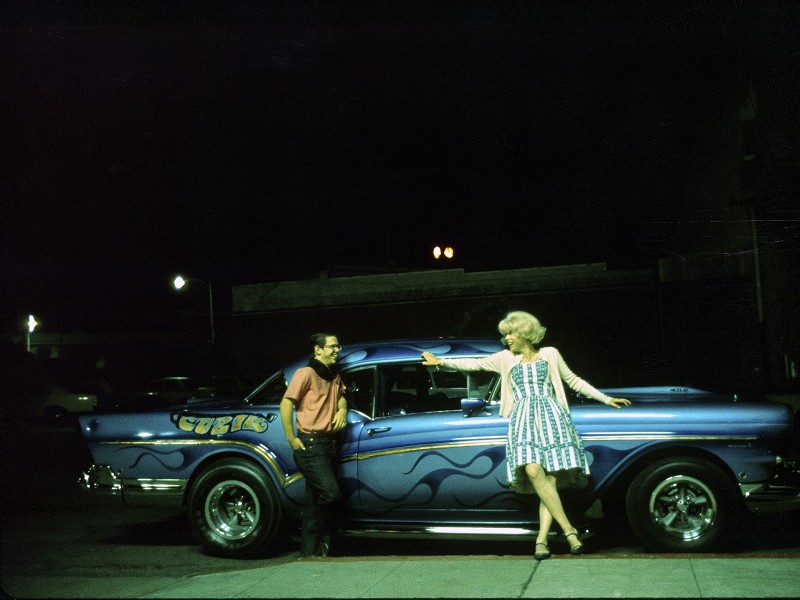
|
Part of the series, MOTHER CUTTERS.
On the last day of summer vacation in 1962, as high school friends Curt, Steve, Terry and John (Paul Le Mat) cruise the streets of small-town California, the mysterious disc jockey, Wolfman Jack, spins classic rock'n'roll tunes. It's the last night before their grown-up lives begin, and Steve's high-school sweetheart, a hot-to-trot blonde, a bratty adolescent and a disappearing angel in a Thunderbird provide all the excitement they can handle.
Following the commercial failure of THX 1138, George Lucas was looking for a job - any job - to stay afloat. Borrowing money from friends and relatives to pay the bills he took Marcia up on a bet: that he was incapable of writing anything that could emotionally involve the audience. The result was the script for American Graffiti. After Universal grudgingly signed the director to a deal production was swift - and easy. Following principal photography the film was initially edited by Lucas and Verna Fields in the spare room above Francis Ford Coppola's garage while he was off shooting The Conversation, which would go on to win the Palme d'Or at Cannes the following year. After the rough cut was completed Fields left for other projects, but the film was nearly three hours long, so Marcia stepped in to complete the film, reworking the entire feature from the ground up. It was a task not without its problems - the interlocking stories proved an incredibly complex web of plot and character - but Marcia persisted, editing the film down to two hours entirely on her own while George worked on the film's sound design with Walter Murch. After a bitter struggle between the Lucas's and Universal over the film's viability, the studio finally released the film, expecting to have failure on their hands. The result was one of the most successful films in Universal's history, grossing over $100 million and proving that the filmmakers of The New Hollywood just might have a point.